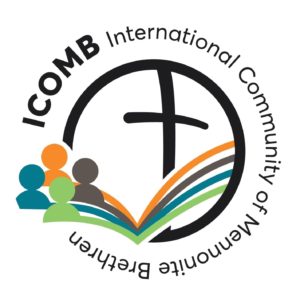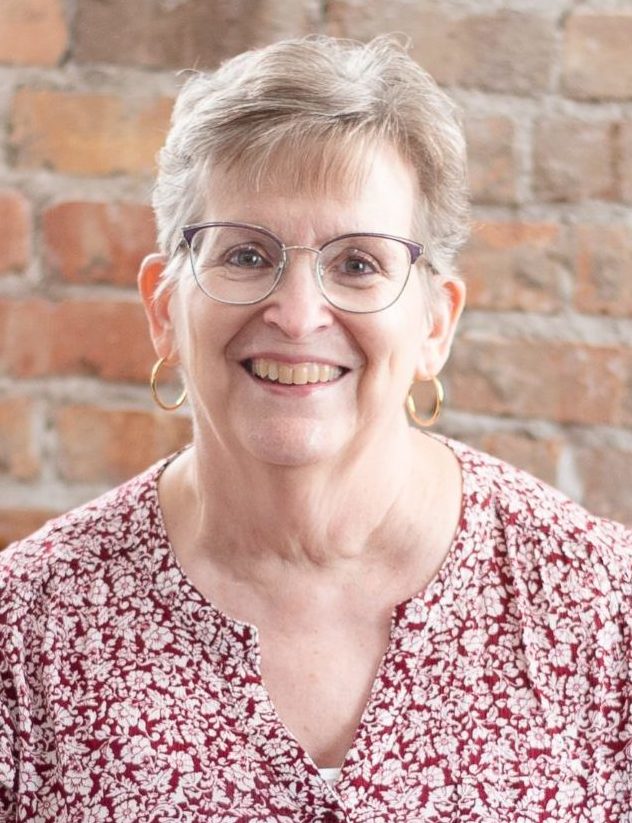

The Evangelical Church of the Mennonite Brethren of Angola (Igreja Evangelica dos Irmaos em Angola, IEIMA) works for the transformation of the community in nine of the 18 provinces with headquarters in Luanda, the capital city of Angola. There are 118 churches, mostly in the central and northern parts of the country, with around 15,000 members.
Daniel Nelson Canganguela is a pastor and the current IEIMA General Secretary and Legal Representative. He shares his testimony:

I have seen God operating in my life and transforming many people’s lives during 17 years of work with IEIMA. People who were in difficulties, who lived in delinquency, robbery and fights have become true disciples of Christ. Many are now pastors leading others to Christ. This encourages me to continue serving this sovereign and wonderful God, for whom nothing is impossible.
Before knowing Christ, I was involved in drugs, prostitution and other sins. Jesus appeared to me in a dream, showing me that I was like a beautiful tree with many leaves that did not produce any fruit. I didn’t know how to interpret my dream, so I looked for help from the pastor of the church I attended. He gave me John 15.1-5. I spent much time in prayer and asked God to manifest himself in my life. After three months I was moved by the Holy Spirit, and I no longer felt pleasure in continuing in alcoholism and prostitution. My friends left me, and I began to regret my decision. But the presence of Jesus Christ comforted and spiritually strengthened me.


Since 2006, God has totally changed the direction of my life. I spend more time reading the Bible and praying than anything else. I was baptized March 17, 2007, at Siloé Luremo church, and I felt a clear call to go on mission with God. The leaders gave me the responsibility of directing the prayer and intercession department of the local church and later as trainer of inter-municipal intercessors. Then I was elected as provincial director of youth in Lunda Norte. I planted two churches that today have become reference churches.
In 2011 I was recommended by the church of Lunda Norte to do the theological training, which ended in 2015. With the support of Mennonite Central Committee, I continued with a course in conflict resolution and peacebuilding at the African Institute of Peacebuilding in 2017. That year I was appointed to the position of national administrative and financial secretary. I was elected to the position of deputy executive secretary of CIMA (Inter Mennonite Conference in Angola) and in 2021 as the IEIMA legal representative.
Today I am taking a master’s degree course in ministerial theology, with the focus on working on the complete formation of man to fulfill God’s holistic mission, for the salvation of humanity. The IEIMA is focusing its greatest attention on spreading the good news among the least and unreached people.
IEIMA specific needs
General Secretary Canganguela lists five specific needs of the Mennonite Brethren conference in Angola.
“The greatest need is the multiplication of more of Christ’s disciples who are trained and willing to go to other any municipalities and provinces of Angola to preach the news of Christ,” he says. He hopes for disciples that will be called and commissioned to be sent on mission within and outside of Angola.
IEIMA also wants to support Angola’s most vulnerable people, to develop family farming and on a larger scale to contribute to the self-sustainability of church members.


The third need is for provision for education and food security of children. Education can help guarantee the employability of young people.
The fourth need is the academic training of leaders for the future of IEIMA and in a broader approach to guarantee greater sustainability for the elderly who retire without any funds. This could help them to finish their life well, whether at work or in the ministry.
“We are referring more specifically to pastors and other workers who are working or who have worked hard for 40 years for IEIMA,” Canganguela says.
The fifth need is for church and school buildings. In many cases the walls are constructed but there are no financial resources for the roofs. So, in the dry season the infrastructure is utilized but in the rainy season there is no possibility. In some very poor areas, the walls are from mud brick walls. In cases where there is no roof, the walls crumble. This brings shame on the Christians, Canganguela says.


Any support given will have a huge impact on the work in this country:
- prayer,
- health treatments,
- theological training,
- entrepreneur training,
- agricultural training and
- financial resource
Prayer requests
- The IEIMA needs prayer for discipleship, mission and theological training for the workers to maintain continuity and expansion of IEIMA with a clear focus on the Great Commission.
- Pray for the least and unreached people of Angola, who mainly live in the south and southeast part of Angola, that God sends more discipled missionaries who will bring the good news.
- Pray for the social, cultural, human and economic development of the IEIMA, to commit and contribute to the fight against hunger, poverty and illiteracy to benefit not only the members but also for all the communities in which EIMA is present.\
To donate to Angola, go to www.usmb.org, Donate Online, with the designation of ICOMB. Add a note for “Angola” with your donation. OR you can also go to the ICOMB website, www.icomb.org, select the GIVE page, and designate a gift for Angola.
Did you know?


- In the heart of Angola’s Malanje province, is the Kalandula waterfall. At 344 feet (105 meters) high and 1,300 feet (400 meters) wide, the Kalandula waterfall is second-largest in Africa just after Victoria Falls.
- Thought to be long extinct, the giant sable antelope was recently found in Angola and is a national icon. This enormous animal is famous for its massive horns and broad stature. To paint a picture, males’ horns can reach nearly five and a half feet.
- Nearly 70 percent of the Angolan population is under 24 years old. Unfortunately, war has had a significant impact on the composition of youth vs elderly. The nation suffered through a 27-year civil war that ended in 2002 and is still recovering from the socioeconomic damage it caused.
- When it comes to Angola’s cuisine, much of it stew based. And a big hearty bowl of stew that’s been simmering all afternoon is hard to beat. The most common ingredients in the stews are beans, chicken, pork, fish, sweet potato and okra.


Connie Faber joined the magazine staff in 1994 and assumed the duties of editor in 2004. She has won awards from the Evangelical Press Association for her writing and editing. Faber is the co-author of Family Matters: Discovering the Mennonite Brethren. She and her husband, David, have two daughters, one son, one daughter-in-law, one son-in-law and two grandchildren. They are members of Ebenfeld MB Church in Hillsboro, Kansas.


















